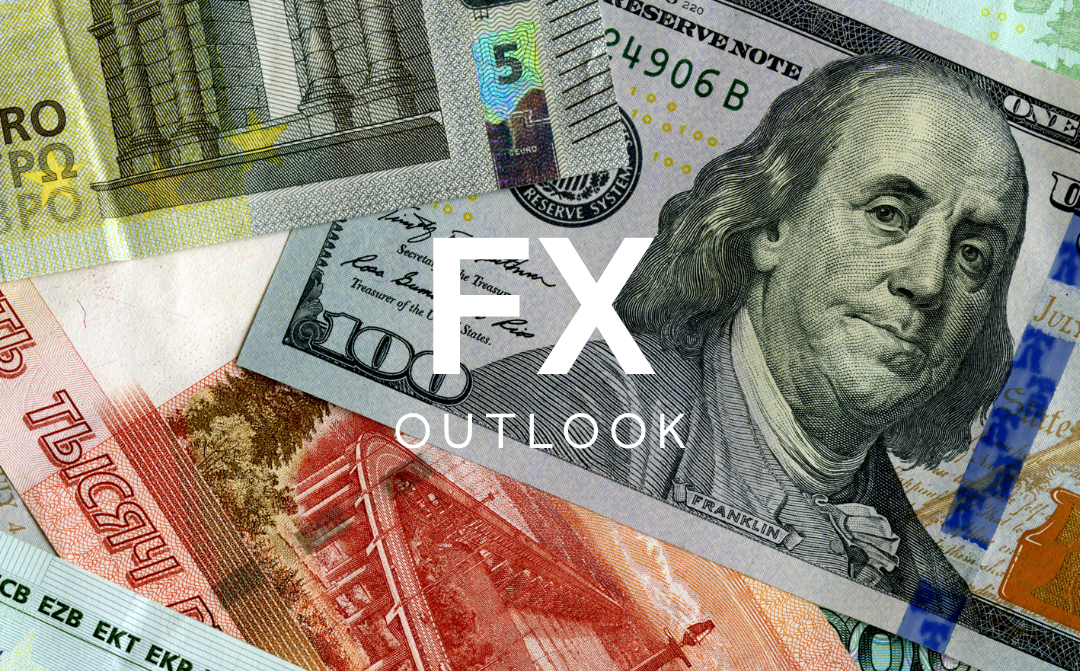11 Sept FX outlook – USD, EUR, GBP, CAD, AUD, NZD

Table of Content
USD
The US dollar outperformed other assets as it stretched its gains for the 8th week. The Dollar Index which tracks the US dollar’s performance against a basket of currencies gained over +0.70% as it hovered around a 6-month peak. Supported by strong economic data and renewed speculation of further rate hikes, the US dollar will be facing another hurdle with investors focusing on the inflation report this week. Recent themes around higher energy prices and Chinese economic underperformance has also played into the hands of dollar bulls, as its haven role draws support in times of concern.
With the global economy already feeling the impact of higher rates, the Federal Reserve has indicated that it will use the tools necessary to bring inflation down to its 2% target. A review of recent economic data indicate that the US economy is moving at a healthy pace despite economic tightening, with the Federal Reserve outlook coming into question as a result. The Fed will also be concerned that the recent rise in crude prices could drive up global inflation. OPEC+ look likely to maintain their production stance in a bid to drive up prices. With the dollar currently positively correlated with the dollar, there is a feeling the higher energy prices will help havens given the risk posed to equity markets if we see another spike in inflation.
Wednesday’s CPI report will give investors an insight into the Fed’s next policy move. A hotter-than-expected outcome will only build a case for the Federal Reserve to continue with its monetary policy campaign, giving the US dollar more strength. Alternatively, a report showing cooling inflation will spark rate pause sentiments, likely to cause weakness for the US dollar. Markets are looking for a higher headline reading, with easing core inflation potentially helping to mitigate the effects on the dollar.
EUR
The euro saw a somewhat changeable week just gone, with gains early in the week eroded as we progressed through to Friday. The euro has remained under pressure as investors remain risk-averse on the eurozone economy plagued by slow business activity. With no major economic headlines to boost the euro, less impactful data reports continued to disappoint with only very few positives to take out from the week.
The euro will be facing a crucial moment in the new week when the European Central Bank (ECB) reconvenes to decide on its monetary policy agenda on Thursday. With the European economy showing signs of weakness as a result of higher rates, the ECB has a difficult situation on its hands as increasing borrowing costs could push the economy into a recession. However, holding rates could derail the ECB’s plan to bring inflation down quickly to its 2% target. Despite maintaining a hawkish narrative on inflation, markets are highly uncertain ahead of this meeting. Although the ECB President, Christine Lagarde indicated that future monetary policy decisions will be data-dependent, a review of key economic data suggests the economy might need a break from higher rates or face an economic downturn.
GBP
The pound struggled to find much support over the course of the past week, with declines particularly evident over the course of Wednesday and Thursday. Much of this comes in response to the growing concerns around the UK economy, with repercussions for the monetary policy implications. That potential economic downturn has helped the dollar outperform, with GBPUSD falling into the lowest level for almost three-months.
On the economic-front, the deterioration of UK PMI data appeared to kick-start concerns over a potential downturn. Those fears were quelled somewhat through an upward revision in the final services PMI (to 49.5), and a better-than-expected construction PMi figure (50.8). Nonetheless, another area of concern has come in the form of the housing sector, with recent UK house price index readings from Halifax (-4.6%) and Nationwide (-5.3%) signalling that the BoE have done enough to have a material impact of affordability. With house prices on the slide, affordability concerns could weaken the demand picture and ultimately help drive down inflation. Whether the BoE consider that enough to halt their tightening cycle remains to be seen.
This coming week sees a raft of economic data being released, with the Tuesday jobs report likely to provide the main event of note. Recent signs of economic distress have been heightened by increased claimants and unemployment. With that in mind, further upside for those figures could put pressure on the BoE to halt the hikes to the detriment of the pound. However, with average earnings up to a worrying 8.2%, we are seeing few signs that the underlying price pressures are abating anytime soon. Another rise could bring plenty of consternation at Threadneedle street, heightening the chance of another rate hike next week.
CAD
The Canadian Dollar became a joint performer with the US dollar this week after gaining support from rising oil prices and a hawkish Bank of Canada. The commodity-based currency fed off from surging crude oil prices spurred by Saudi Arabia and Russia’s pledge to extend production cuts (1 million bpd) to the end of the year. The Bank of Canada boosted the Loonie further after supporting its rate pause with a hawkish narrative. The central bank’s decision to hold the overnight rate at 5.00% came alongside a warning that they won’t hesitate to raise rates if necessary. This is likely to be an ongoing theme for central banks, with the risk of a second energy-driven inflation surge bringing a data dependency as we move to the end of this tightening phase.
On the jobs front, there was an improvement in the labour sector, with the latest jobs report showing an addition of 39.9k jobs in August. Meanwhile, market forecasts of an uptick in unemployment failed to hit the mark, with the rate holding steady at 5.5%.
Heading into a quiet week, the CAD will look to sustain its revival from the drivers of the previous week as it looks to take advantage of slip-ups from other key economic data reports. Speculation over the potential for a resurgence in energy markets has helped CAD of late, and thus any further upside would likely come to the benefit of this key commodity currency.
AUD
The Australian dollar spent much of last week regaining lost ground after a Monday sell-off that saw AUDUSD slide into a 10-month low. Sentiment has been driven primarily by events in China, with the fear of a protracted crisis for their main trade partner impacting the demand and pricing of Australian exports. However, last week did see a lull in that story, with the bears taking a breather for now.
The rate decision from the RBA saw the bank retain their 4.10% cash rate as expected, with markets increasingly confident that we have reached the end of the road for this tightening cycle. This decision appears to be as much a response to the Chinese crisis as it is a reflection of their outlook for Australian inflation. After-all, the latest Australian trade data brought the lowest trade surplus in 17-months as exports of coal, iron ore, and gold weakened.
This week has started on a positive note, with weekend data out of China seeing the country move out of deflation territory. Could this help signal some form of stabilization? A second uptick for PPI similarly helps that narrative, rising from -4.4% to -3.0%. Looking ahead, inflation expectations and the jobs report are released on Thursday, with last month’s -14.6k employment change figure providing a warning sign of impending economic distress. Further weakness could put pressure on AUD. In terms of the Chinese influence, Friday’s data dump sees the release of retail sales, industrial production, fixed asset investment, and unemployment should provide an insight into the consumer, business conditions, and the economy as a whole.
NZD
The New Zealand dollar continues to trade relatively closely with its Australian neighbour, as the NZD spent much of the week climbing back towards the highs seen before the Monday decline. However, much of that appeared to be driven by EUR and GBP weakness on the potential for an end to the ECB and BoE rate hike story given a weakening economic picture. As such, Friday brought a fresh one-month high for NZD against the pound. Nonetheless, the China story continues to dominate for the New Zealand economy, with the latest ANZ commodity prices decline (-2.9%) likely to be a reflection of weak demand for their exports.
Looking ahead, food price data (FPI) on Wednesday provides a good proxy for New Zealand inflation, with last months surprise decline bringing the first negative reading since March 2022. Aside from that, the focus will likely revolve around the Chinese growth story, with Friday’s raft of economic data points expected to bring volatility for NZD.
Disclaimer: This material is a marketing communication and shall not in any case be construed as an investment advice, investment recommendation or presentation of an investment strategy. The marketing communication is prepared without taking into consideration the individual investors personal circumstances, investment experience or current financial situation. Any information contained therein in regardsto past performance or future forecasts does not constitute a reliable indicator of future performance, as circumstances may change over time. Scope Markets shall not accept any responsibility for any losses of investors due to the use and the content of the abovementioned information. Please note that forex trading and trading in other leveraged products involves a significant level of risk and is not suitable for all investors.







